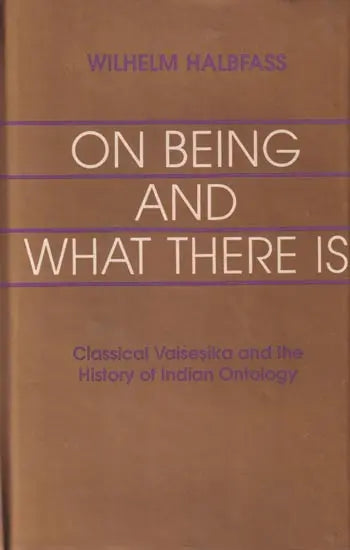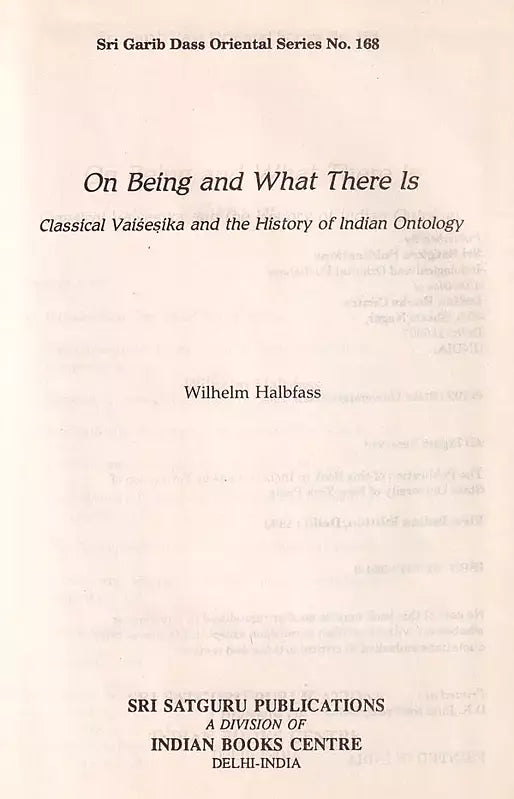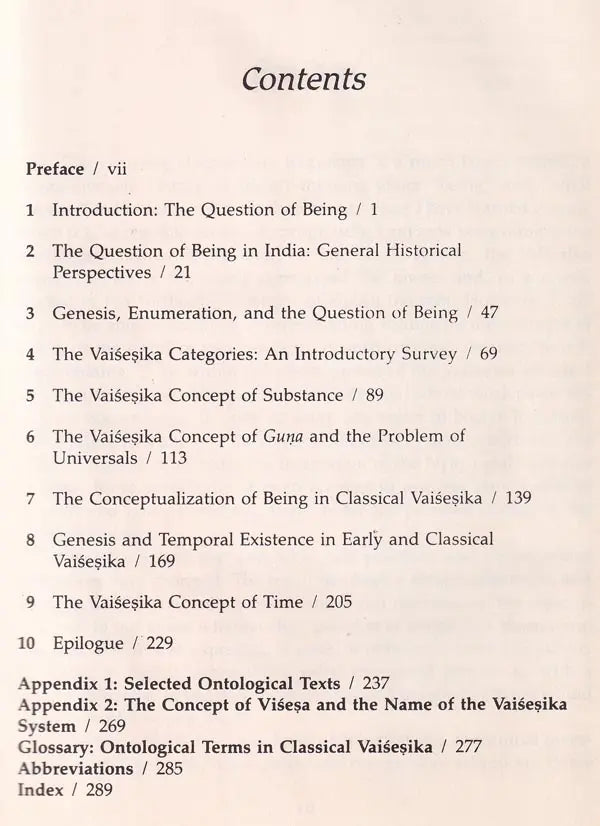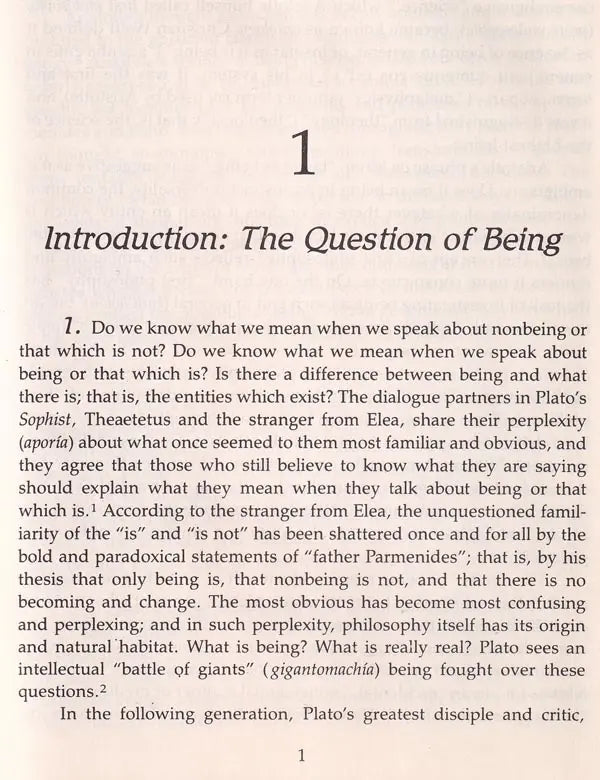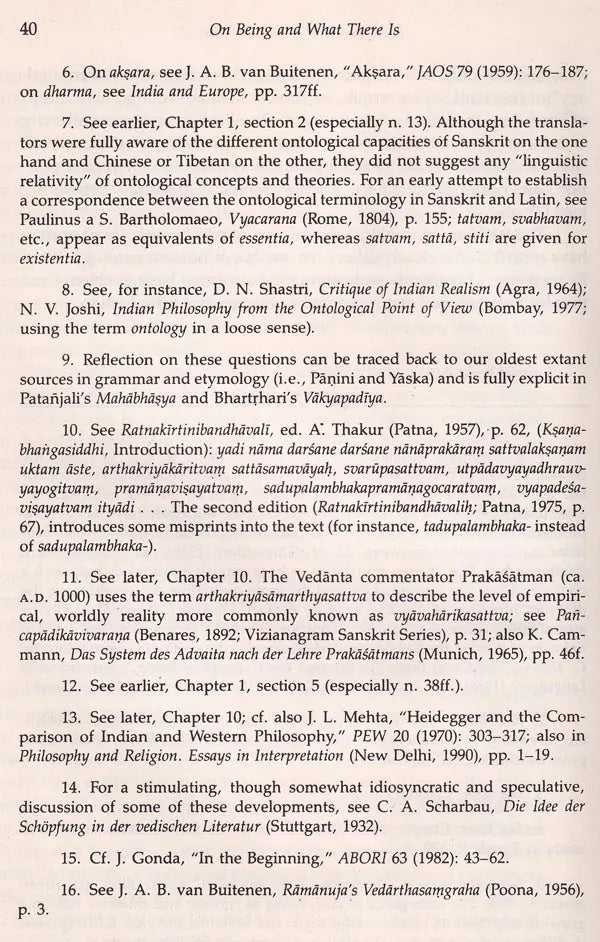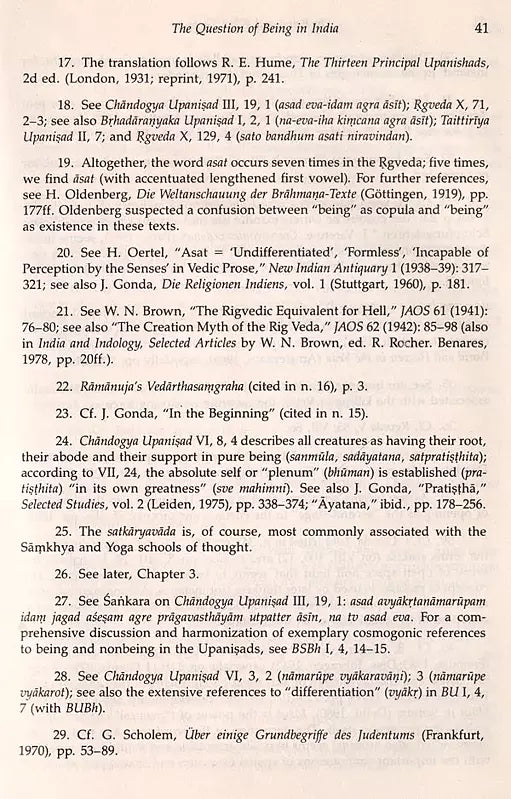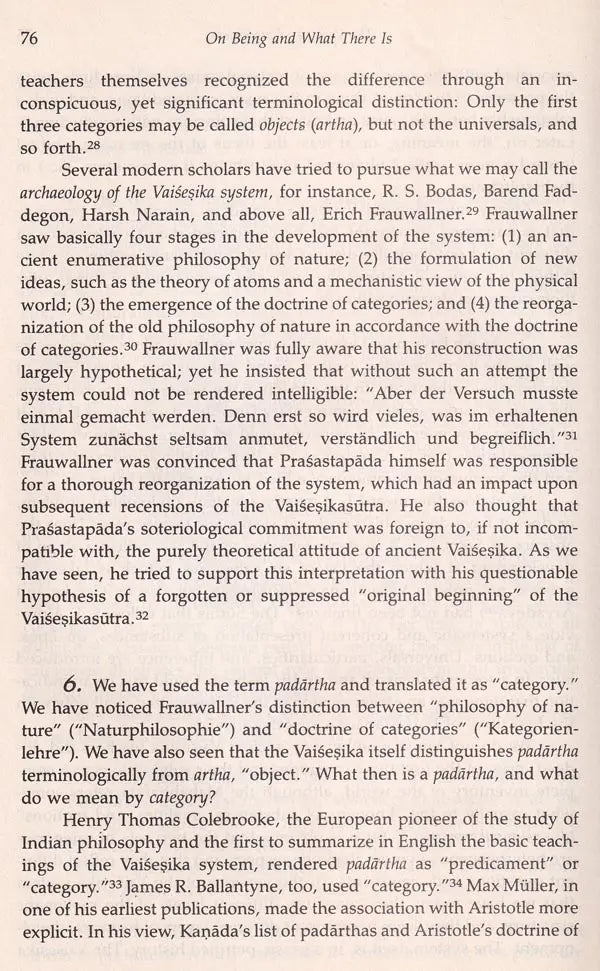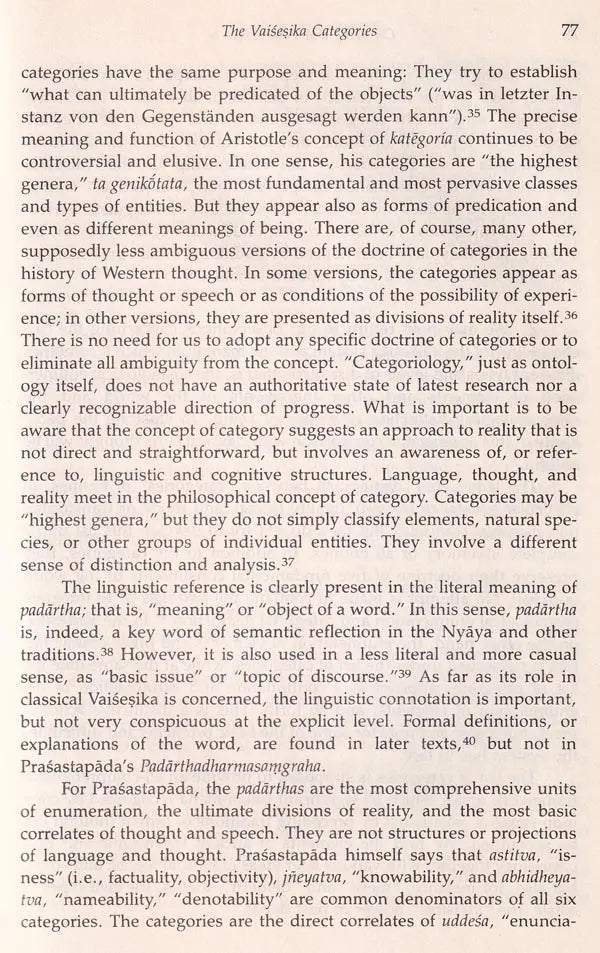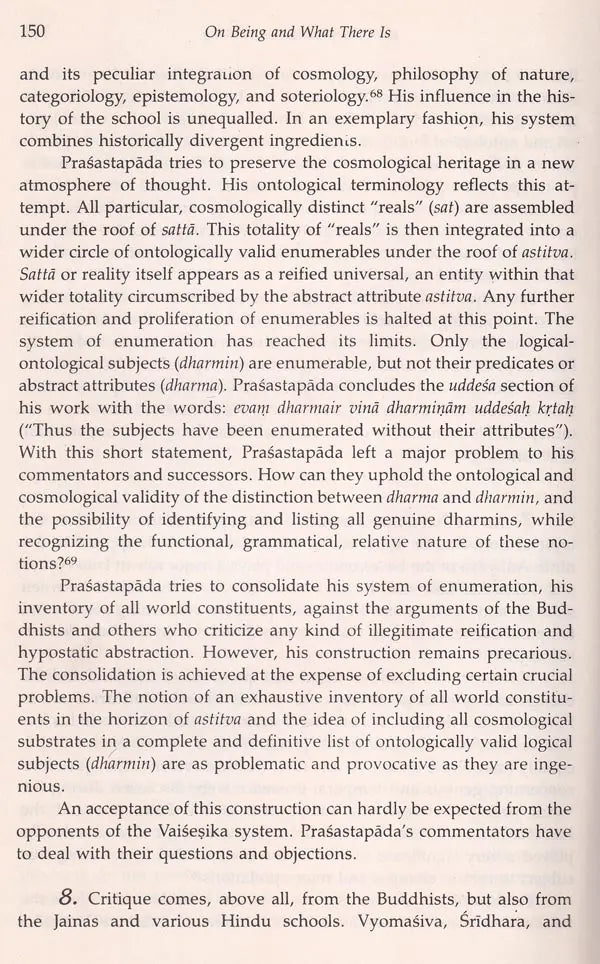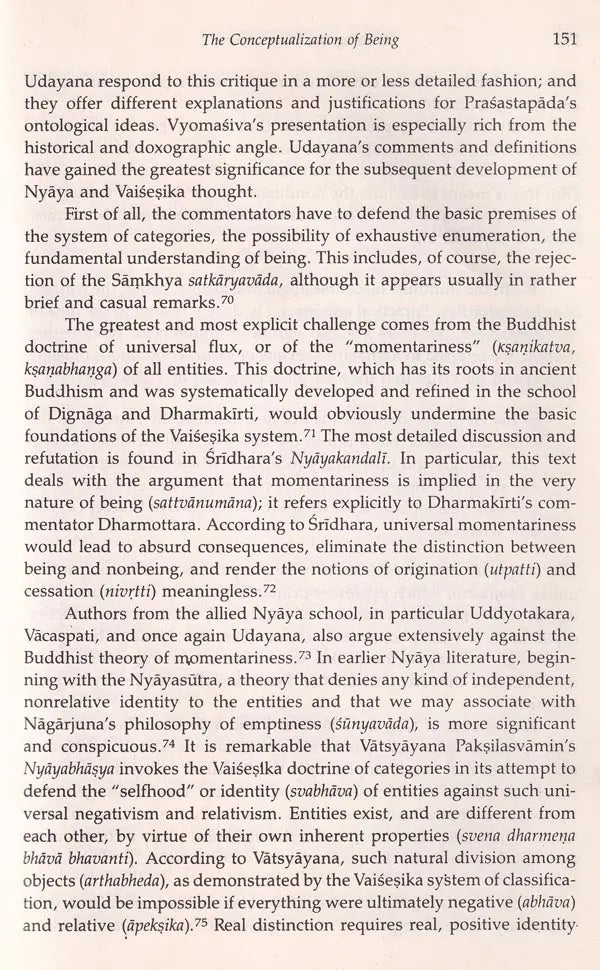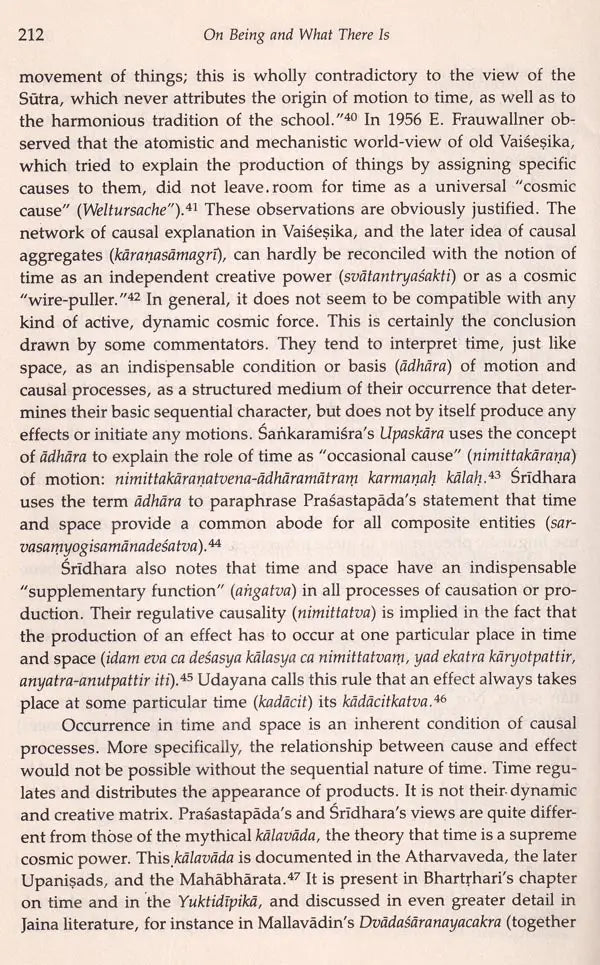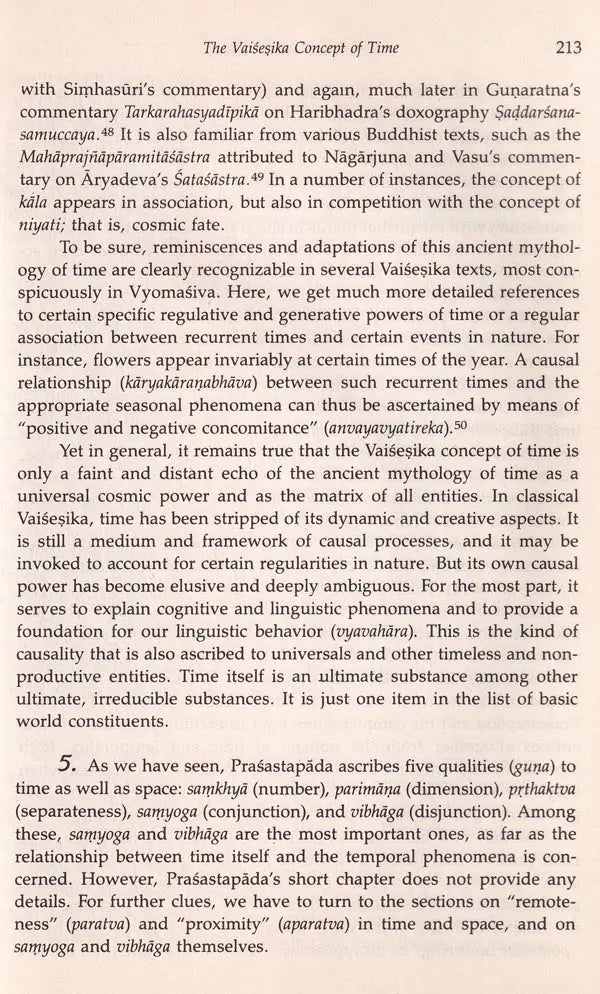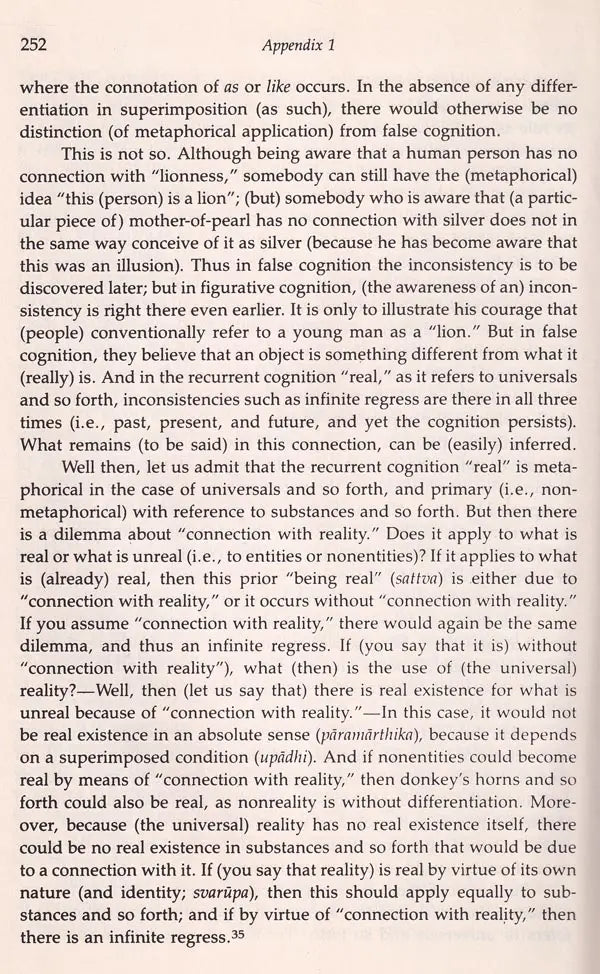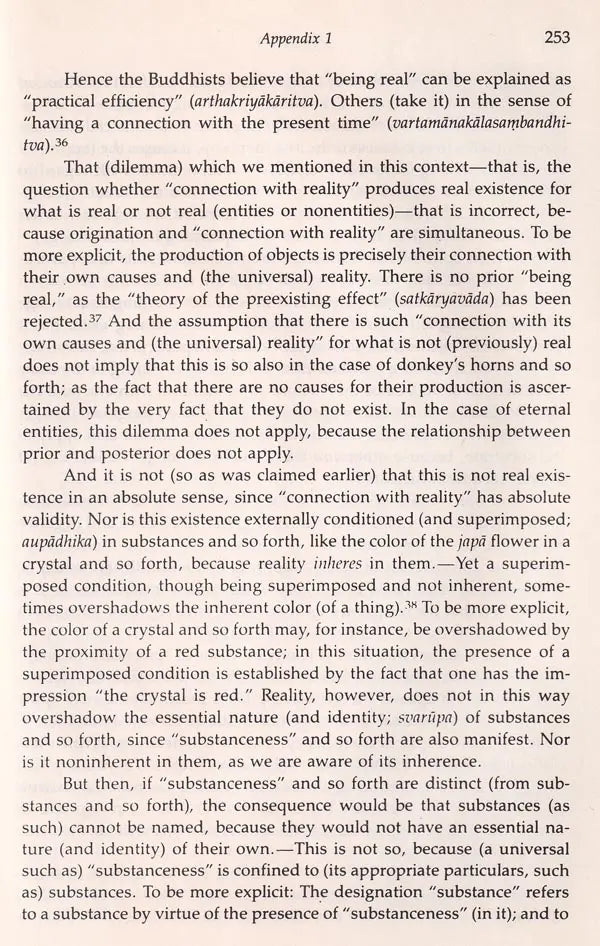On Being and What there is–Classical Vaisesika and the History of Indian Ontology
On Being and What there is–Classical Vaisesika and the History of Indian Ontology is backordered and will ship as soon as it is back in stock.
Couldn't load pickup availability
Genuine Products Guarantee
Genuine Products Guarantee
We guarantee 100% genuine products, and if proven otherwise, we will compensate you with 10 times the product's cost.
Delivery and Shipping
Delivery and Shipping
Products are generally ready for dispatch within 1 day and typically reach you in 3 to 5 days.
Book Title: Vaisesika Ontology
Author: Wilhelm Halbfass
Publisher: Sri Satguru Publications
Language: English
Edition: 1993
ISBN: 9788170303640
Pages: 311
Cover: Hardcover
Dimensions: 23 cm x 15 cm
Weight: 470 gm
About the Book
Vaisesika Ontology is a comprehensive study of some of the most challenging and pivotal issues within classical Indian philosophy. Wilhelm Halbfass delves into the intricacies of Vaisesika ontology, offering a synthetic analysis of its core concepts. This book is notable for its deep exploration of central topics such as substance, being, and the universal within the Vaisesika system. Halbfass has crafted an accessible and authoritative account, filling a significant gap in the existing literature on this philosophical tradition.
The work is a pioneering effort in understanding the Vaisesika system, particularly the conceptualization of being. Halbfass's thorough examination spans a broad array of texts, many of which have not been studied extensively before. His analysis incorporates not only the core Vaisesika writings but also brings in materials from other philosophical traditions, including Jainism, creating a rich and comparative context for understanding the Vaisesika school. This book presents a detailed study of important figures such as Vyomsiva, Sridhara, and Udayana, offering insights into their contributions to the development of the Vaisesika system.
Scholars have lauded this book for its scholarly rigor and depth. It is regarded as one of the best works on Indian philosophy, praised for its constructive scholarship and intellectual richness. The book offers a critical and nuanced understanding of Vaisesika ontology, and it is a valuable resource for both undergraduate and graduate students of Indian philosophy.
John Taber from the University of New Mexico describes the book as “one of the best books on Indian Philosophy I have ever read,” while J.N. Mohanty from Temple University considers it a “much-needed text for courses on Indian Philosophy.”
About the Author
Wilhelm Halbfass is a distinguished Professor of Indian Philosophy at the University of Pennsylvania. He is well-known for his work on Indian philosophy and comparative philosophy, and his other notable publications include India and Europe: An Essay in Understanding and Tradition and Reflection: Explorations in Indian Thought. Halbfass’s scholarly work has contributed significantly to the understanding of Indian philosophical traditions, particularly in the realms of metaphysics and ontology.
Preface
In the preface, Halbfass discusses the ambition behind this book as part of a larger, ongoing project to trace the history of Indian thought on being and ontology. He reflects on his philosophical evolution, the shifting methodological approaches, and the growing doubts regarding the very relevance of the question of being in the philosophical discourse. He shares that this study on Vaisesika is a result of over two decades of research, focusing on the classical Vaisesika system up to Udayana, while leaving the integration of Nyaya and Vaisesika for further study.
Halbfass’s work blends specialized philological and conceptual investigations with more general philosophical and comparative reflections, offering an in-depth examination of the Vaisesika system while opening doors to future research on Indian philosophical thought.

